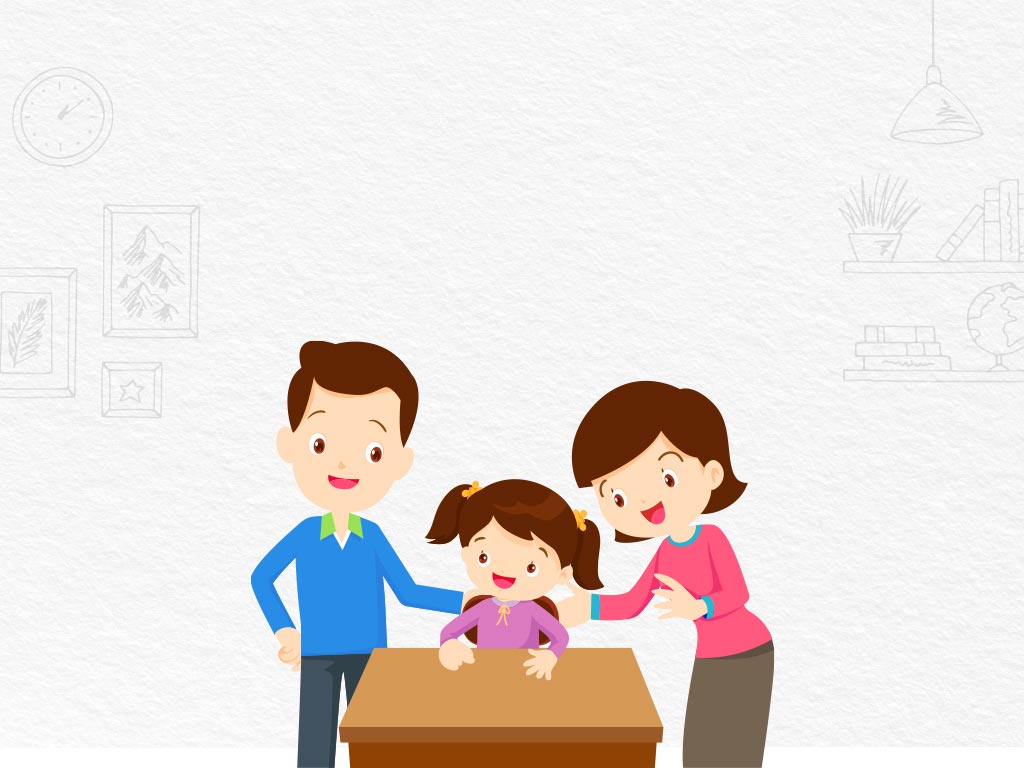10 Important Life Lessons for Kids To Teach
Every generation, every family, and parent desires to see their younger ones grow into humans that they are meant to be and be the most successful person in life. Every parent needs to train or prepare their children in a way that makes them better humans. Moral life lessons give kids the knowledge to deal with the struggles or problems that they may face in their lives easily.
While teaching them these important life lessons, parents must share their experiences. These experiences can impart quality life lessons that will help them handle problems on their own.
Important Life Lessons for Kids To Teach
It is essential to teach kids valuable & important life lessons; this helps them face the world and allows them to excel in it.
Some of the valuable & important life lessons for kids are:
- Honesty
One of the important life lessons to instill the value of honesty in children is through the pattern of personal behavior. It is usually seen that children imitate their parents. Hence, the parents must refrain from performing any sort of act of dishonesty, no matter how small or inoffensive it may be. For instance, you may ask your kid not to tell dad that you had an ice cream date in all probability, but the lesson across your child is that it is acceptable to hide things from the elders and loved ones.
You need to let your child hear you when you talk to others in truthful tones. If you realize that your child is lying, try not to overreact in such situations. Instead, try to explain to them calmly the consequences of lying while encouraging your kid to own up to their wrongdoings.
- Good Manners
Parents need to ensure that they teach important life lessons to their children. This is a good practice that will help parents shape their children’s behavior well. It also helps them boost their social IQ. Parents can commonly use phrases such as ‘please’, ‘thank you, and ‘sorry’ while dealing with situations that involve children.
Parents also need to ensure that they conduct or behave themselves rightfully. The basic reason being that children learn more from the elders’ behavior and actions. Consistent and regular designing of good manners help children easily accept them as an integral part of their life.
- Healthy Food Selections
There is a very high probability that parents may foster or cultivate the importance of eating right and choosing a healthy lifestyle with their kids. Parents compelling their kids to make healthy food choices will help them promote their comfort and happiness. It also guarantees a completely healthy lifestyle.
Parents can also train or guide their children to develop healthy eating habits and manners by giving them nutritious and healthy meals right from their early years. It can also be done by choosing nutritious foods and meals for themselves.
- Respect
Respect for elders, for other people, for authority, and for oneself is very important to become a good human being. Being respectful to other people assists the kids in generating a feeling of self-worth and empathy.
It also helps kids co-exist peacefully and composedly while accepting each other as they are, regardless of their caste, creed, or religion. The crucial qualities such as cleanliness, obedience, self-control, kindness, and determination will follow if the child has basic human respect.
- To Lose Gracefully
Life has many ups and downs; it may present you with several disappointing situations, and to accept these failures can prove to be very difficult to handle. Some parents may wish to coach and train their kids to be better sports-persons and face failure or triumph gracefully.
These kids may be inspired to face failures in their path and look at them as lessons that they learn from. Kids who are sporty and compile all the healthy experiences of winning or losing on the ground are more likely to have a better hand at facing failures in life.
- Time Management
Inculcating the value of time in children is one of the best lessons that parents can give their children. This helps them in imbibing a habit of consciously controlling time. Kids who understand how to prioritize things, situations, and decisions are more likely to plan well and organize expertly. They can grow up to be extremely successful in their careers.
Time management skills are one of the best moral lessons for students and children that will help them improve their productivity, competence, and expertise. It also helps them to increase their ability to focus as well as enhance their decision-making abilities.
- Responsibility
One of the vital moral lessons for students and children is responsibility. Learning to be responsible has the potential to be tremendously beneficial for them. Cultivating responsibility in kids is very similar to teaching them the vital skills required to live full of accomplishments.
Parents can show the value of responsibility by showcasing the kids how to do things that one is supposed to do, and after that, accept the outcome of the action performed. This helps the kids develop a healthy and strong attitude towards work and take pride and honor in whatever that the kid does.
- The Joy of Learning
Parents should create opportunities where their kids may develop a love for learning. Parents need to discover the kids’ passion and then support them to strive for it while excelling in what they do.
This may motivate the kids to build on the knowledge and skills that they already have and come across new ones. Consistently and regularly learning new things may inculcate the kids with confidence; it may also help lift their self-esteem and make them more receptive to valuable moral life lessons.
- Money Management
The important life lessons for students and kids include an ethical head start on handling money, the value of retaining or saving, and the consequences and results of wasteful spending habits. Parents need to teach kids how to budget early on in their life. It is very important to indoctrinate the concept of contentment and smart and responsible ways of spending.
- Compassion and Forgiveness
Parents need to gradually teach their children to extend a helping hand every time an event may come up or arise. Compassion can be shown in little things like helping to water the plants, holding and carrying a bag for the elderly neighbor, helping or guiding someone with directions in the locality.
Feeling inspired to care for others and considering the needs and requests of others may promote the values of compassion and kindness in children. Parents need to encourage their children to harbor feelings of forgiveness towards others as well as the ones close to them. Possessing the ability to forgive others is very important for one’s own peace of mind and for being happy in one’s own life.
Final Thoughts
Parents are the guides and mentors who possess the responsibility to help their kids positively navigate through life. Inculcating important life lessons may empower children to become good, upright, and successful human beings and individuals.





